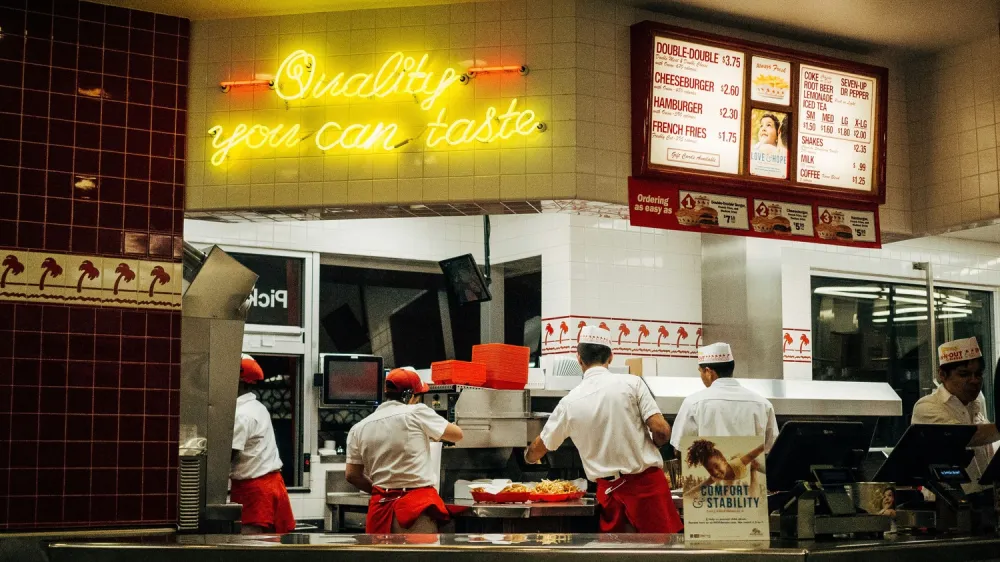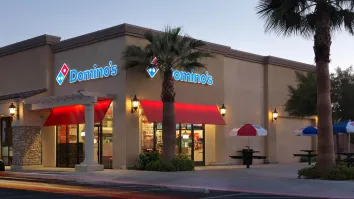Tackling Food Waste as a Sector: Five Ways Technology Can Help
By Dr Ruby ChanIn this final article of the three-part series ‘Tackling Food Waste as a Sector’, we turn our attention to technology. The previous articles explored sustainability and cost-saving measures. Here we cover how technology can support key solutions to reduce food waste, helping QSRs operate more efficiently and sustainably.
Food Waste Auditing
What gets measured gets managed. A basic food waste audit involves weighing, recording, tallying and analysing. QSRs can simplify the auditing process by adopting platforms that use cloud-based technologies with AI capability.
These platforms are comprehensive and can be conveniently managed through mobile and tablet apps. These platforms can save audit time through automated waste tallying and predictive analytics, enabling QSRs to easily review top-wasted foods and the top-loss reasons. Managers can set up alerts and receive a weekly summary of top-waste opportunities. Food waste auditing technology can enable managers to quickly identify areas of improvement and apply best practices, improving sustainability through reduced food waste.
Surplus Food Management
Donating or discounting surplus is an accessible way to reduce waste and while supporting local communities and promoting social impact. Technology can streamline the logistics of managing surplus food through mobile apps that connects QSRs with consumers, charities, and food rescue organisations. QSRs can connect with consumers who are eager to purchase a surprise bag of food. QSRS can track surplus food and schedule pickups for donation.
Some apps offer this functionality using blockchain and IoT technology to rescue and redistribute food. Surplus food management apps support efficient and sustainable surplus food management in QSRs.
Food Production and Kitchen Management
Good production management is essential for operational efficiency and can help QSRs reduce food waste. QSRs can optimise production management by adopting mobile app accessible platforms that use cloud-based technologies, some of which are enhanced with AI and geofencing capability. Apps that integrate across the front and back of house can minimise food waste through reduced order errors. Other apps offer menu engineering and recipe management.
Ensuring that recipes are followed precisely can reduce the variability in food preparation, leading to less waste. AI-based platforms can guide kitchen staff on what to prepare and cook and when. Platforms with geofencing functionality can provide the real time location of consumers so takeaway orders can be prepared to minimise holding time. By reducing food waste, technological solutions for food production and kitchen management support more sustainable and efficient QSR operations.
Demand Prediction
Effective demand prediction can reduce food waste in QSRs. By leveraging cloud-based solutions supported by AI for data analytics, QSRs can anticipate customer demand more accurately, minimising overproduction and spoilage.
Event-based forecasting can help QSRs prepare for fluctuations in demand, such as those caused by local events or weather changes. Using historical trends to optimise food production schedules can ensure the right amount of food is prepared. Demand prediction technology helps QSRs prepare food in optimal quantities to meet demand, resulting in reduced food waste and increased profits.
Inventory Management
Integrated cloud-based platforms can help QSRs reduce food waste by optimising inventory management. Such platforms can track food usage in QSRs and help prevent overstocking with real-time inventory control. Forecasting tools can assist staff in adjusting stock orders based on historical data and real-time analytics. AI-enhanced analytics can help QSRs manage food items throughout their lifecycle. Digital labelling systems can assist stock rotation by keeping accurate records of product shelf life. These technologies can help QSRs reduce waste, lower costs, and maintain a more sustainable and efficient operation.
The insights shared in this article are from the End Food Waste Cooperative Research Centre (CRC) QSR Sector Action Plan research project. This research will develop a QSR sector-wide action plan of strategies that can help the Australian QSR industry reduce food waste. Research to inform this sector action plan is ongoing. We invite QSR industry professionals to contribute by sharing their experiences and insights, for the benefit of the entire sector. To participate in a survey as part of this research please click here. For further information on how to participate please e-mail Dr Li Ping Thong (Lead Chief Investigator).

























